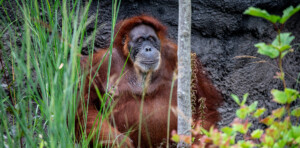Nature tourism project BARK (Biopark Barquinha), a conservation centre for endangered species, is set to open in 2021 with an investment of €70m.
BARK, located in Vila Nova da Barquinha, Portugal, will focus on the conservation and breeding of endangered species.
It’s hoped the destination will create 150 jobs and attract 450,000 visitors in its first year.
“We want to create an adventure for any visitor,” said investor João Paulo Rodrigues.
The project initially expects to house 260 animal species in the first phase, half of which are in danger of extinction.
The animals will live on 43 hectares of land, divided into four habitats representing four different world regions – the Indonesian archipelago, the Pantanal, Peneda-Gerês and the African Savanna.
“This will be the first bioparque in the country, the second in Europe and the fifth in the world to be open during the night,” João Paulo Rodrigues explained.
Improving animal welfare
He also stressed that the goal is “to improve animal health and welfare, but also to extend the experience of those who visit BARK, sensitising and alerting to the growing extinction of species”.
BARK will feature several visitor support facilities, a four-star hotel with 130 rooms, a restaurant, and a pedagogical centre.
Speaking to Portuguese news agency Lusa, the president of the municipality of Vila Nova da Barquinha, Fernando Freire, said that BARK will “endow the region with a strong tourist component”.
“I am certain that the implementation of this project will be decisive for the development of the region and the country, attracting new audiences to the interior, generating economic gains as well as the creation of new jobs,” he added.
Meanwhile, Paris’s oldest theme park, Jardin d’Acclimatation, has developed an immersive wild animal edutainment VR experience designed to engage children with conservation.
‘Wild Immersion’ will bring children up close to animals in their natural environments through VR and AV tech, without leaving a carbon footprint.















